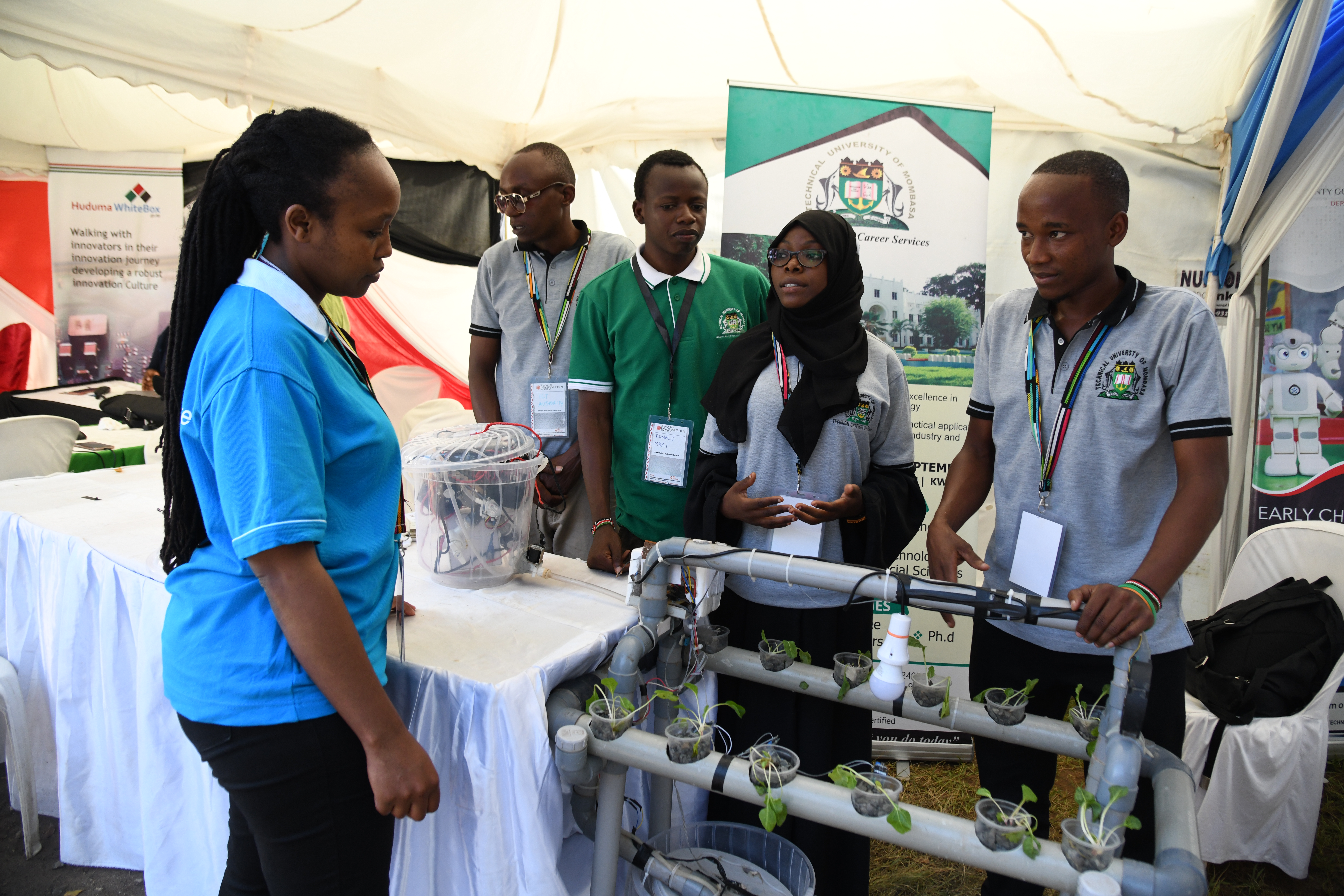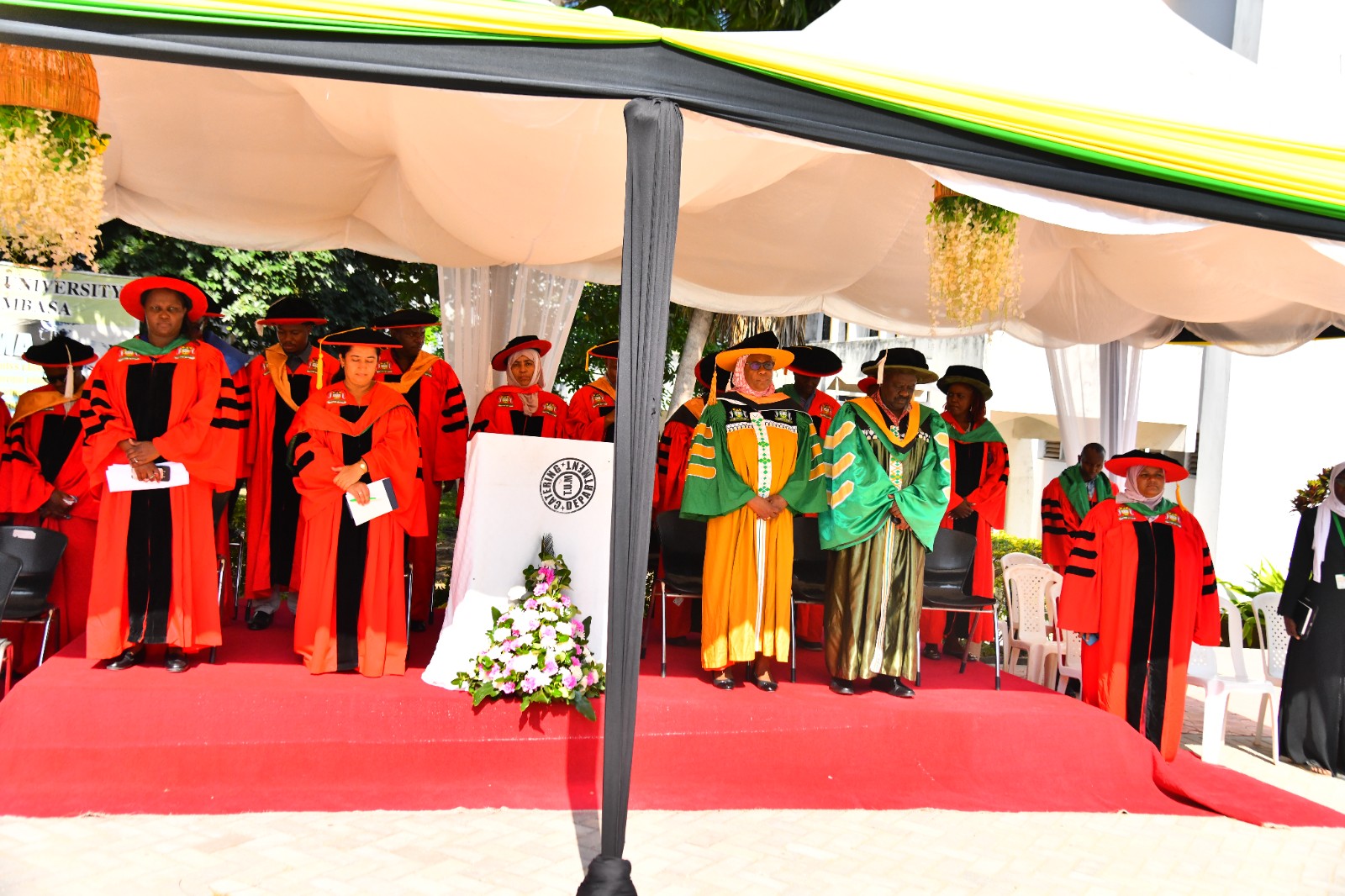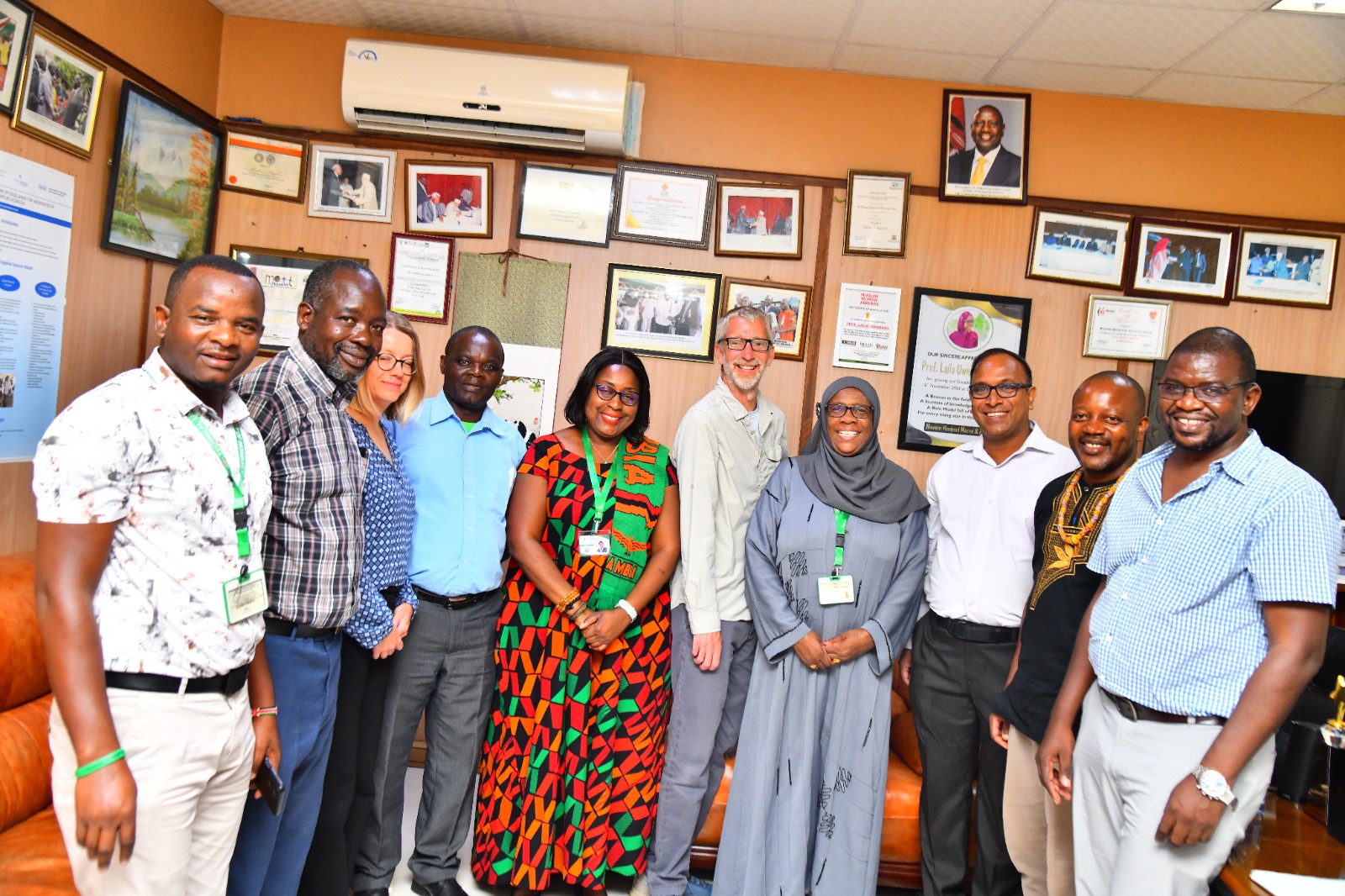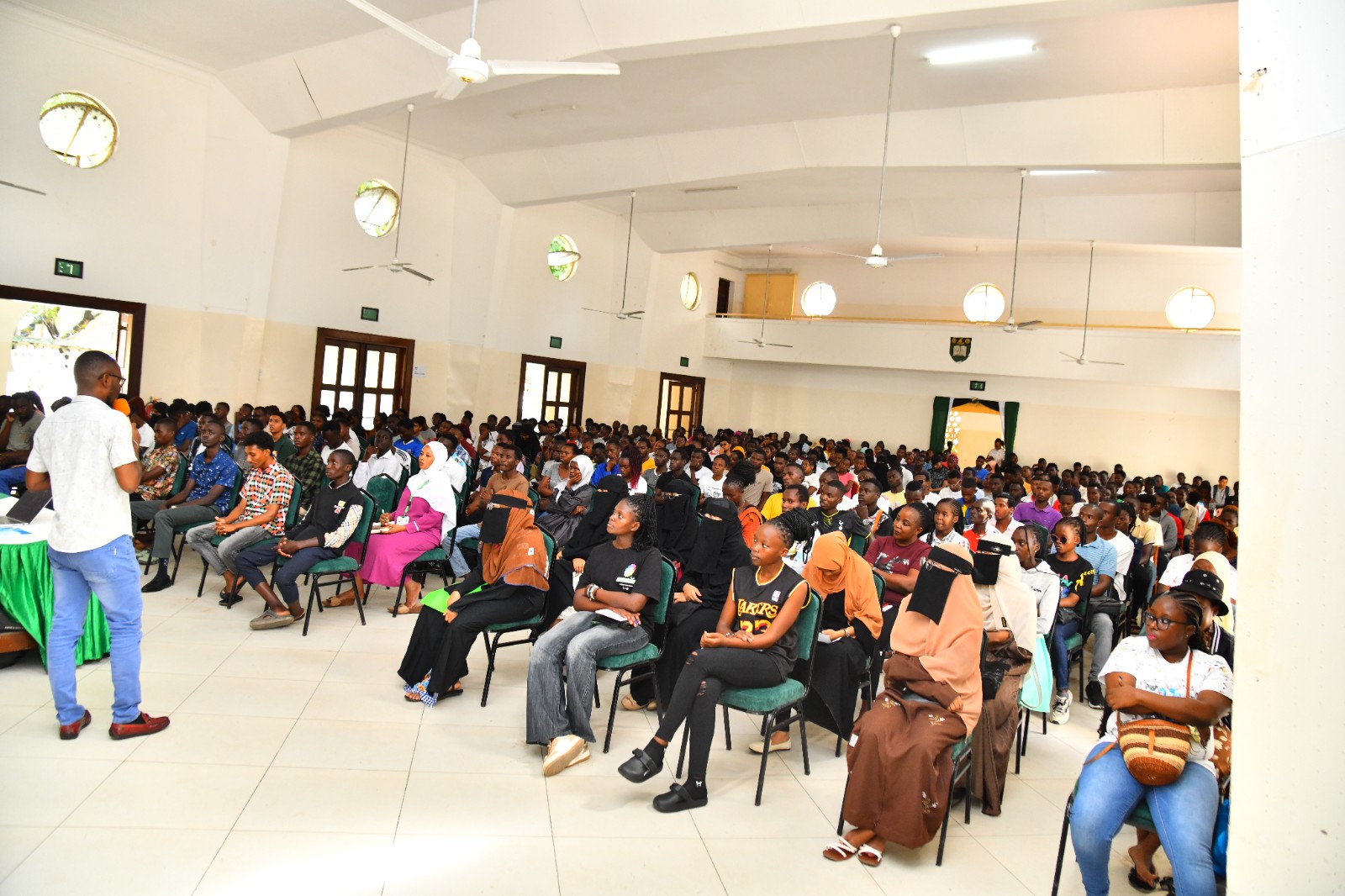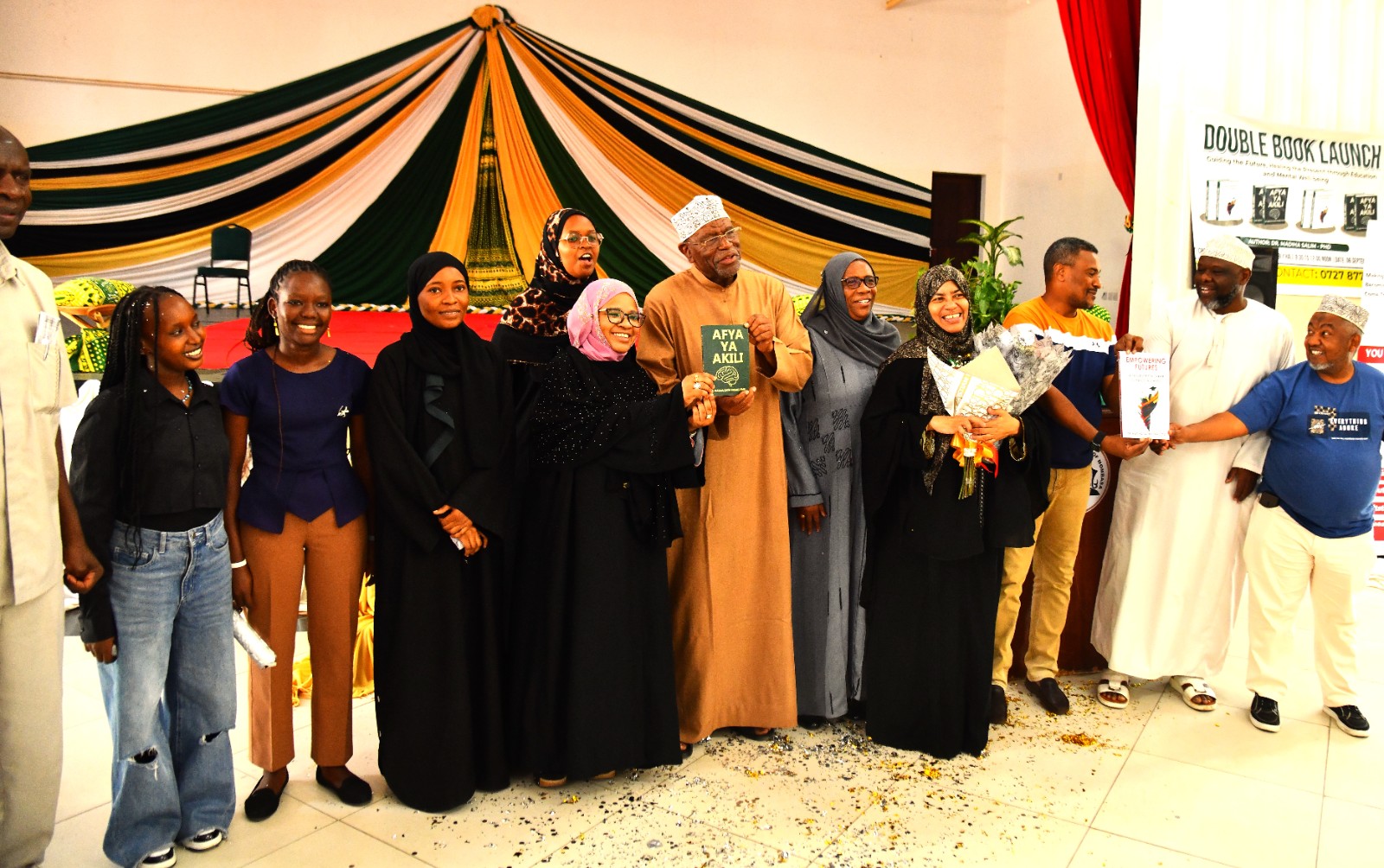TUM students showcasing their innovation dubbed "The Solar powered hydroponic system" during the Pwani Innovation week expo
Members of the public and entrepreneurs were greatly impressed with innovations that TUM students have showcased at the Swahili Pot Hub for the whole week.
The greatest attraction was a solar-powered hydroponic system designed specifically for arid and semi-arid regions.
The exhibition opened on Monday this week and was scheduled to end on October 6, 2023.
People from all over the coast region especially farmers who attended the expo as well as the sponsors of the Pwani Innovation Week felt that our students’ creation could go a long way in supporting all-season crop watering and farming in agricultural farms.
Harnessing the sun
The innovation that was showcased in the Event A category is premised on the fact that the arid and semi-arid regions in Kenya have always faced challenges in agriculture due to harsh climatic conditions, including limited access to water and extreme temperatures, that makes traditional farming methods increasingly unreliable and unsustainable in these areas.
To address the situation, the TUM students have come up with a solution that harnesses the power of the sun.
The solar-powered hydroponic system is a revolutionary way of growing plants without soil by utilizing nutrient-rich water only.
The system utilizes solar panels to generate electricity, which powers pumps that distribute water and nutrients to the plants. The system is designed to be sustainable and energy-efficient, ensuring that it can operate even in areas with limited power supply.
Excited farmers
At the expo, the innovation captured the attention of locals who demonstrated eagerness to adopt this new agricultural method. Throughout the week, farmers from the arid and semi-arid regions have been evidently excited about the prospect of growing crops all year round, irrespective of the prevailing climatic conditions.
The solar powered hydroponic system clearly offers them an opportunity to increase their productivity and improve food security in their communities.
Besides its agricultural benefits, the solar-powered hydroponic system also has environmental advantages. By eliminating the need for soil and reducing water usage, it minimizes the risk of soil degradation and water scarcity.
It’s other key characteristic is that it aligns with the United Nations Sustainable Development Goals, particularly those related to zero hunger, climate action, and sustainable cities and communities.
The TUM students' creation has received positive feedback from experts, entrepreneurs, and policymakers attending the Pwani Innovation Week. They have been commended for their ingenuity and problem-solving skills in addressing the challenges faced by farmers in arid and semi areas.
Other TUM exhibitions
Other related projects that TUM students showcased include the Real-time Smart Water Leakage Detection System in Climate Smart Agriculture and the Intelligent Ramp Position Detection System.
In all, 20 TUM students are taking part in hackathon competition which also entails robotics, machine learning and block chain.
TUM’s Corporate Communication spoke to Ronald Mbai, a fourth year student in Electrical Engineering, about the event. He described it as an awesome opportunity to expose the students.
“Hackathon is the fastest way to generate ideas and solve problems in the society,” Mbai said while calling upon universities and colleges to introduce it within the institutions of higher learning.
Mbai felt that the event provided a great chance for students to showcase their talents and skills.

